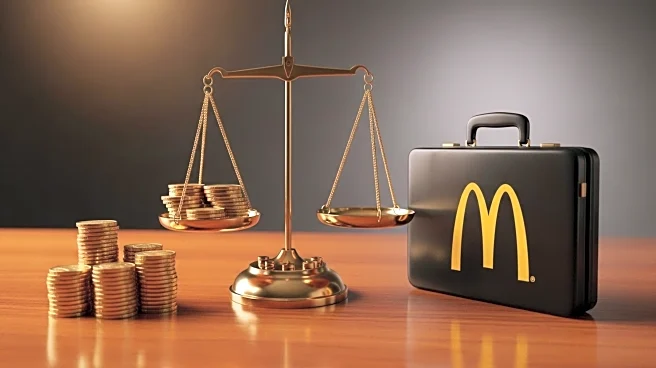What is the story about?
What's Happening?
Chris Kempczinski, CEO of McDonald's, has expressed concerns over President Trump's no tax on tips policy, stating it creates an uneven playing field for businesses. The policy, part of the One Big Beautiful Bill, allows for a federal income tax deduction from reported tips, benefiting businesses that pay workers a smaller wage supplemented by tips. McDonald's, which does not have a tipping system, does not benefit from this policy. Kempczinski suggests that the policy favors businesses that rely on tips to supplement wages, creating disparities between those paying the federal minimum wage and those paying a lower tipped wage.
Why It's Important?
The no tax on tips policy has significant implications for the restaurant industry, particularly for businesses like McDonald's that do not utilize a tipping system. By providing tax benefits to tipped workers, the policy may incentivize businesses to adopt tipping practices, potentially affecting wage structures and labor costs. This could lead to increased competition among restaurants, with those offering tips potentially attracting more workers. The policy also highlights broader issues in wage equity, as tipped workers often earn less than the federal minimum wage, relying on tips to make up the difference.
What's Next?
Kempczinski has suggested setting a single minimum wage for both tipped and non-tipped employees to address the disparities created by the policy. This proposal could lead to discussions on federal wage standards and potential legislative changes. McDonald's has previously raised its minimum wage in response to labor shortages, indicating a willingness to engage in wage policy discussions. The impact of the no tax on tips policy may prompt other businesses and industry leaders to advocate for changes in wage regulations.
















